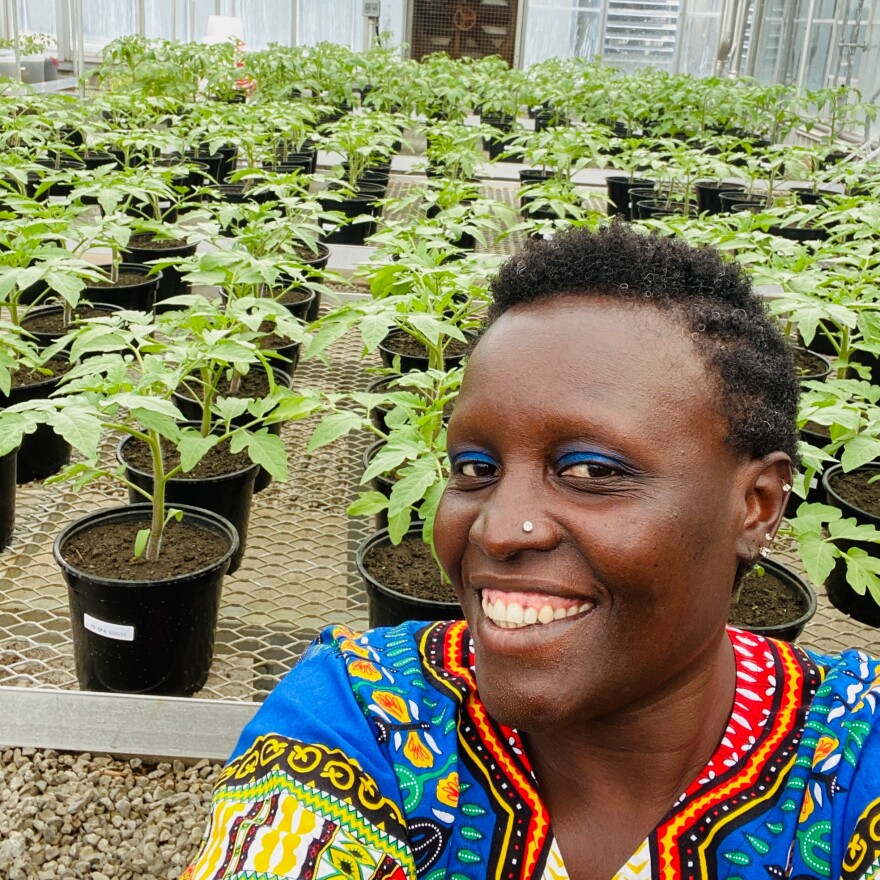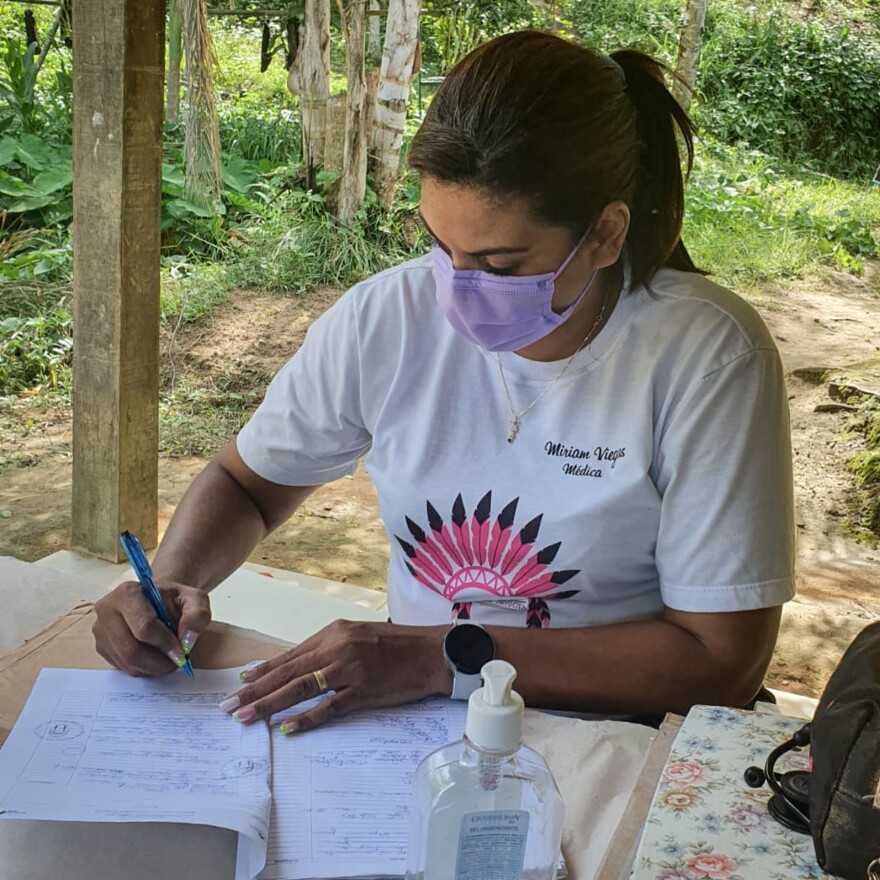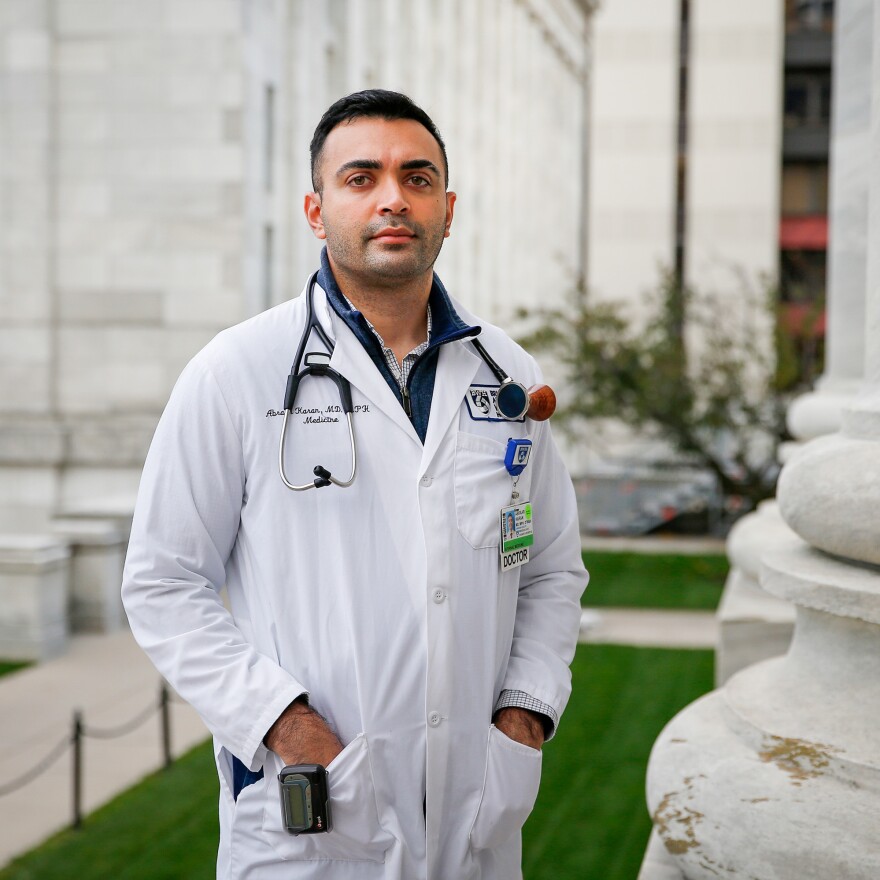My wish: In the fight for women's rights, we should 'remember that courage is stronger than fear'
Malala Yousafzai, winner of the 2014 Nobel Peace Prize and co-founder of Malala Fund, a global girls' education charity

Education equality is an ambitious goal. Especially now, when women's rights are worsening around the world. Iranian women are protesting for the right to make their own choices. Taliban leaders in Afghanistan instituted a nationwide ban on girls' education. Discouraging as these realities may be, my wish is for people to remember that courage is stronger than fear.
Young women in every country are working to defy misogyny and demonstrate their power. They know solutions to our world's biggest problems are locked up with their access to education and opportunity. They also know there are feasible plans to get all girls learning — like increasing government funding for education, developing inclusive curriculums and implementing more equal policies and laws. To get leaders to prioritize these plans, we need to amplify girls' demands on a global scale. We need individuals, movements and companies across every expertise to speak up, take actions that advance gender equality and pressure leaders to do the same.
Women and girls continue to muster their strength amidst even the greatest of challenges because they know it isn't enough to hope for a better future, we need to fight for it.
My wish: Don't give up the fight against COVID-19

Gregg Gonsalves, a longtime AIDS activist and 2018 MacArthur Fellow, is codirector of the Global Health Justice Partnership and associate professor of epidemiology at the Yale School of Public Health
Don't give up. As an epidemiologist and someone who has been personally affected by pandemics and epidemics, all I can wish for in 2023 is that we don't give up on COVID-19. Most governments around the world and many people are acting as if the pandemic is over, even as in the U.S. we rack up 400-500 dead per day, a 9/11 worth of deaths every week or so. There is so much more we can do than accept these deaths as the grisly price for normal. But the first step? Not giving up the fight.
My wish: Take care of each other — and our planet

Vanessa Nakate, climate activist and UNICEF Goodwill Ambassador
We must take care of people. We must take care of vulnerable communities. We must take care of the planet for the generations who are still to come.
My wish: An additional $10 billion for the Pandemic Fund
Dr. Raj Panjabi, special assistant to the President and National Security Council senior director for global health security and biodefense, the White House

In 2023, I believe the world should rally in support of the Pandemic Fund. An outbreak anywhere can become a threat to people everywhere. The Pandemic Fund, housed at the World Bank, works with low- and middle-income countries to invest in labs, frontline health workers and local health systems to stop epidemics when and where they occur. But more needs to be done. Globally, an additional $10 billion is needed annually to prevent, prepare for and respond to the next pandemic. That may seem like a lot. But it's an investment — one that could save millions of lives and pay for itself by preventing the loss of trillions of dollars in the future. With sufficient support, the Pandemic Fund can help keep families across the world safe from the next health threat.
My wish: Don't ignore the brains of our youth

Esther Ngumbi, assistant professor of entomology and African American studies at University of Illinois Urbana-Champaign
My wish is that in 2023, the world taps into the brainpower of 1 million young people from the so-called developing countries. (More would be even better but I had to pick a number and many stories about development talk about ... millions.)
Ensure that the most rural of the rural can connect to the internet for free and in locations from schools to libraries to parks to bus stops. They'll learn from it and use it to contribute their ideas. Local governments, I wish you'd pay for that free access to lead to a free flow of education and ideas.
My wish: Be kind to yourself!

Dr. Maymunah Yusuf Kadiri, medical director and psychiatrist-in-chief at Pinnacle Medical Services, a Nigerian health clinic and currently an Aspen New Voices Senior Fellow.
With COVID-19 going into its third year, my wish is for everyone to prioritize their mental health. This means showing more kindness and compassion to self and others. I hope people learn to forgive or go easy on themselves for what they did in their survival mode during the pandemic, then work to heal and move on. This is very essential to our holistic wellness as a society. Taking care of oneself shouldn't be seen as selfishness but as self-preservation and not necessarily "me first" but "me too." May 2023 be good to us all.
My wish: Love each other — and listen to unheard voices

Melva Acosta runs the New Hope soup kitchen in Lima, Peru
From our soup kitchens, aware of the harsh reality, extreme poverty and the inequality that exists in the world, we ask for solidarity, empathy and peace but above all love for the other. Remember that they also have dreams for a different tomorrow. Let's not be indifferent in the face of this poverty that hurts the most forgotten, those who suffer and have no voice. That is why they are never heard. I hope that in 2023, the children of the world do not suffer from hunger and that all wars end, and that, especially in our country Peru, everything returns to peace and calm. And let us stop killing our brothers. Let's restore our hearts and begin to sow love and forget hate.
My wish: Give more personalized care to indigenous patients
Miriam Viegas, a doctor with Brazil's Special Secretariat for Indigenous Health (SESAI)

I wish all levels of health care were tailored to the 500 Guarani Mbya people I visit and provide primary care for in their villages near the town of Miracatu in São Paulo state — and to all indigenous peoples. When they need other levels of care — including running tests at city hospitals — they're left to wait in months-long lines. And because they depend on public resources to help them reach the city, they often miss appointments when roads to their villages are flooded by rain or the vehicle provided by SESAI isn't available to pick them up. If there were, for instance, one or two slots reserved just for indigenous patients, then rescheduling an appointment wouldn't mean waiting another several months to run tests. By the time we get the results, make a diagnosis and start treatment, oftentimes their disease is very advanced. Differentiated care — care that takes into account not only their health but their culture and their access to care outside their village — could prevent that.
My wish: Public health figures beat back fake health info
Abraar Karan, infectious disease physician and researcher at Stanford University

I wish that in 2023, we as public health professionals succeed in identifying and dispelling misinformation far more effectively. It is imperative that all citizens become better at understanding the complex patterns around us to make the best decisions for our health and communities.
As an epidemiologist and infectious disease doctor, I focus my work on analyzing infectious disease transmission through multiple forms of data. COVID-19 made it clear that misinterpretation or misunderstanding of data leads people — some with immense influence — to make bad policies and decisions, all while thinking they're doing the right thing. This eventually becomes misinformation that takes hold in the public mind, which itself can become viral and harmful to public health.
If people could better understand basic concepts in epidemiology, they might be more equipped to look past misleading headlines or biased news sources with ulterior agendas. We as public health experts must do more in how and what we communicate, and through more comprehensive and creative means, to reach far more people more quickly. And then the next pandemic may be more easily understood from the start and better controlled to the finish line.
My wish: Fight disease through equitable partnerships and collaborations
Dr. David Walton, the U.S. global malaria coordinator, oversees the U.S. President's Malaria Initiative, an interagency effort led by the U.S. Agency for International Development

My hope for 2023 is that the global community continues to make the necessary structural, political and economic changes to ensure greater equity throughout global health. For instance, sub-Saharan Africa bears 95% of malaria cases and 96% of deaths, yet richer nations have not done enough to make way for Africans to lead the fight against this disease. Richer countries need to fundamentally change the way they consider, define and engage in equitable partnerships and collaborations to solve some of the world's most complex problems and to reinvent the way global health programs are initiated and implemented.
My wish: Pay attention to the needs of teen mothers
Maxwell Gomera, an Aspen New Voices Senior Fellow and a representative of the United Nations Development Program in Rwanda

In 2023, let's come together to empower teen mothers and give them a chance at a brighter future. We must first focus on preventing adolescent pregnancies and providing support for those who do become pregnant. We must address the cost of living crisis and provide resources and support to these families. We must invest in programs that help teen mothers become successful entrepreneurs, provide education and job training opportunities. With access to affordable finance for teen mothers, such as grants and low-interest loans, we can break the cycle of poverty and give them a chance to thrive. Teen mothers and their families deserve a fair shot at success in this changing world.
My wish: Get serious about studying long COVID in Africa
Dr. Ifeanyi McWilliams Nsofor, New Voices Senior Fellow at the Aspen Institute

My wish for 2023 is for more investments in long COVID research and provision of support to sufferers. And I wish that efforts to document experiences of long COVID should be extended to Africa.
Some people who recover from COVID-19 infection have other lingering and often debilitating conditions. These are collectively known as long COVID. According to the U.S. Centers for Disease Control and Prevention, symptoms of long COVID include difficulty thinking or concentrating (sometimes referred to as "brain fog"); sleep problems; change in smell or taste; depression or anxiety; changes in menstrual cycles; tiredness or fatigue that interferes with daily life; joint or muscle pain and others. The estimate is that there have been millions of cases around the world. But the World Health Organization says long COVID is under-studied in Africa, so investments into long COVID research must include Africa.
My wish: Treat health as a key part of foreign policy
Dr. Junaid Nabi, New Voices Senior Fellow at the Aspen Institute, serves on the Working Group on Regulatory Considerations for Digital Health and Innovation at the World Health Organization. Twitter: @JunaidNabiMD

My wish for 2023 is that global leaders act on what has been clear from the beginning of the COVID-19 pandemic: Governments must regard health as an essential component of foreign policy. Addressing this crisis requires investing in a new kind of diplomacy — one that focuses on building innovative platforms and unique collaborations that can tackle current health threats and prepare the world for future ones.
The pandemic has exacerbated several ongoing global challenges. The intense wave of infections in China has impacted up to 900 million people. We still lack a global system of data collection and sharing — one that is transparent and can enable the assessment of public health risks. Policymakers have done a poor job in developing sustainable infrastructure that could enable fair distribution of vaccines for the global poor. The pandemic has also pushed low- and middle-income into a severe debt crisis that can wipe away the economic progress made in the last few decades.
World leaders continue to ignore the necessity of global health diplomacy. I hope 2023 is the year leaders can reach a clear consensus — or at least a coherent approach to developing one — toward addressing the health and socioeconomic consequences of the pandemic.
My wish: Haiti needs free and fair elections
Brian Concannon, human rights lawyer who focuses on Haiti

As a lawyer who has spent the last 28 years helping to establish democracy in Haiti, I want 2023 to be the year that the U.S. and other powerful members of the international community allow Haiti to run free and fair elections.
When I first went to Haiti with the U.N. in 1995, I felt part of a broad international effort to help Haiti escape its history of dictatorships. I believed that my experience growing up and practicing law in a stable, prosperous country like the U.S. would provide useful lessons. But too often since then, I have found myself joining Haitians forced to fight for their democracy against the policies of the stable, prosperous countries. Gangs are overrunning the country that now lacks a single elected official.
I am hopeful that the U.S. will draw a useful lesson from the Jan. 6 threat to our own democracy and recommit to allowing Haitians to escape its history of both dictatorial government and foreign interference.
My wish: Let Africa run its own health-care effort
Madhukar Pai, associate director, McGill International TB Centre at the McGill School of Population and Global Health

Top on my wish list for 2023 is to see the African region manufacturing their own vaccines, medicines and products. The COVID-19 pandemic showed us that the trickle-down, charity-based global health model is completely broken, as high-income countries hoarded vaccine supplies as they became available. Global South countries want equity, justice and fairness, not charity; they want to be self-sufficient and self-reliant. Global North nations must back this vision as supportive allies. At a minimum, high income countries must not be an obstacle to progress.
Your turn: What is your global wish for 2023?
What do you wish the world could achieve this year? Let's assume money is not an object and global leaders will line up to make it happen. Tell us about a global health and development problem you would tackle, why you think it's important to address in the coming year and what you wish the world would do to solve it. We may feature it on NPR.org. Email your idea to goatsandsoda@npr.org with the subject line "2023 wishes."
Jason Silverstein, Jill Langlois, Gisele Grayson and Marc Silver contributed to this story.
Copyright 2023 NPR. To see more, visit https://www.npr.org.




